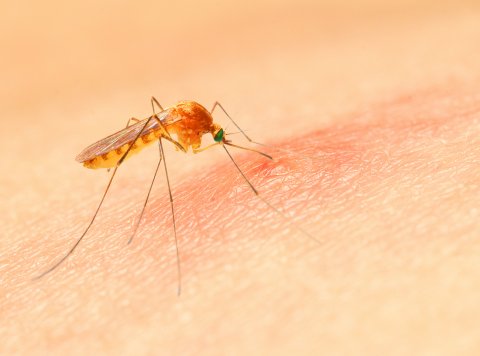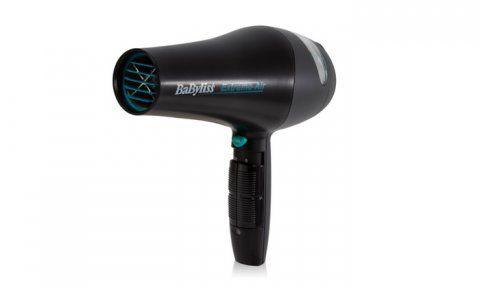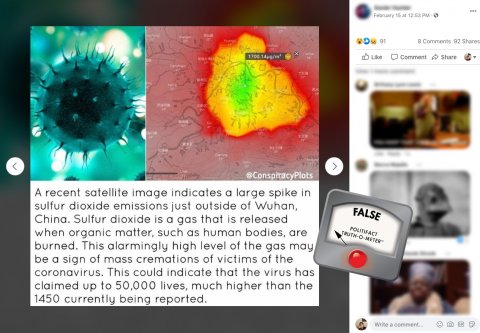Aside from the pandemic COVID-19, infodemic also rapidly spreads in the online world.
Millions of people around the world are mostly online due to home quarantine to stop the spread of coronavirus. Some irresponsible netizens took this chance to spread the “fake news” virus, which also eventually resulted in an infodemic.
World Health Organization officials have addressed the problem many times since the outbreak kicked off in China at the start of 2020.
“We’re concerned about the levels of rumours and misinformation that are hampering the response.”
“But we’re not just fighting an epidemic; we’re fighting an infodemic. Fake news spreads faster and more easily than this virus, and is just as dangerous,” they said.
Health officials said infodemic, if not dealt with, would be harmful to everyone. From conspiracy theories on the virus’s origin to eating raw ginger as a cure, more and more irresponsible people try to take advantage of this world crisis to earn money or just simply to have fun.
Below is the list of false facts and fake news about COVID-19, which resulted in infodemic.
Also read: Pastor spreads fake news on COVID-19 to face charges
Infodemic: 13 False Facts and Fake News about COVID-19
1. Mosquito bites and Chinese food could spread coronavirus

COVID-19 is a respiratory disease that spreads primarily via droplets when an infected person coughs, sneezes or breathes out, or through droplets of saliva or discharge from the nose. Mosquitos can spread Dengue, not coronavirus. Chinese food will not give you a virus just as drinking Corona beer would not make you sick (if you drink moderately).
2. Regularly rinsing your nose with salt and water can prevent infection
There is zero evidence that was regularly rinsing out your nose with saline solution has protected anyone. It will not prevent you from catching respiratory infections.
3. Vaccines against pneumonia can defend you against the new coronavirus
Vaccines against pneumonia, such as pneumococcal vaccine and Haemophilus influenza type B (Hib) vaccine, do not protect against the new coronavirus.
The virus is so new and different that it needs its vaccine.
4. Spraying alcohol or chlorine all over your body can protect you against Covid-19 infection. Gargling bleach or drinking excessive amounts of water can flush out the virus
Good hygiene practices and frequent hand washing, plus the well-established practice of social distancing, may help reduce the risk of infection. Washing your hands with soap and water is still better than alcohol or sanitizer.
5. Inhaling hot air from a hair dryer to cure the coronavirus
A YouTube video with nearly half a million views falsely and dangerously advises inhaling hot air from a hairdryer to cure the coronavirus.
6. Cold weather, hot weather, snow, eating garlic and taking a hot bath will also prevent you from getting Covid-19
There is no evidence to suggest that Covid-19 will be affected by the general weather or the seasons at this stage.
Infodemic: 13 False Facts and Fake News about COVID-19
7. Ultraviolet disinfection lamp kills the new coronavirus
UV lamps should not be used to sterilize hands, or other areas of skin as UV radiation can cause skin irritation.
8. Colloidal silver, vitamins, teas, and essential oils could cure the disease
None of these are approved treatments or preventative measures against the disease.
9. Emissions from crematoriums in China could be seen from space

It was first debunked in February. The images were not taken in real-time, PolitiFact reports, and most likely come from burning coal and oil.
10. “Immunity boosting” products
According to the World Health Organization, Vitamin C, Zinc, and similar treatments don’t have any known effects on preventing contraction of COVID-19.
11. A religious group in the Philippines is exempted from COVID-19
Zion of God, a religious group in Agusan del Sur in the Philippines, claimed they could not be infected with the virus because the “Holy Spirit” protects them.
However, WHO said people of all ages, gender, nationality, social status can be infected by COVID-19.
12. Antibiotics are effective in preventing and treating COVID-19
No, antibiotics do not work against viruses, only bacteria.
13. Eating bananas could protect you from contracting the virus.
DOH said banana is good for the health, but it will not protect anyone from getting infected with COVID-19.
